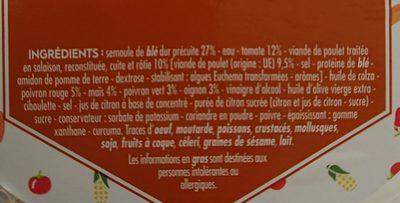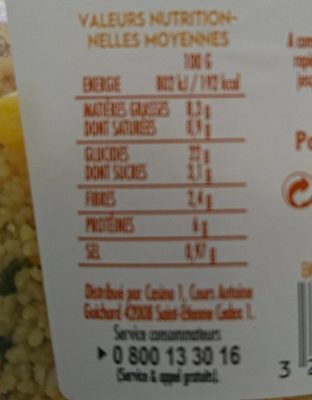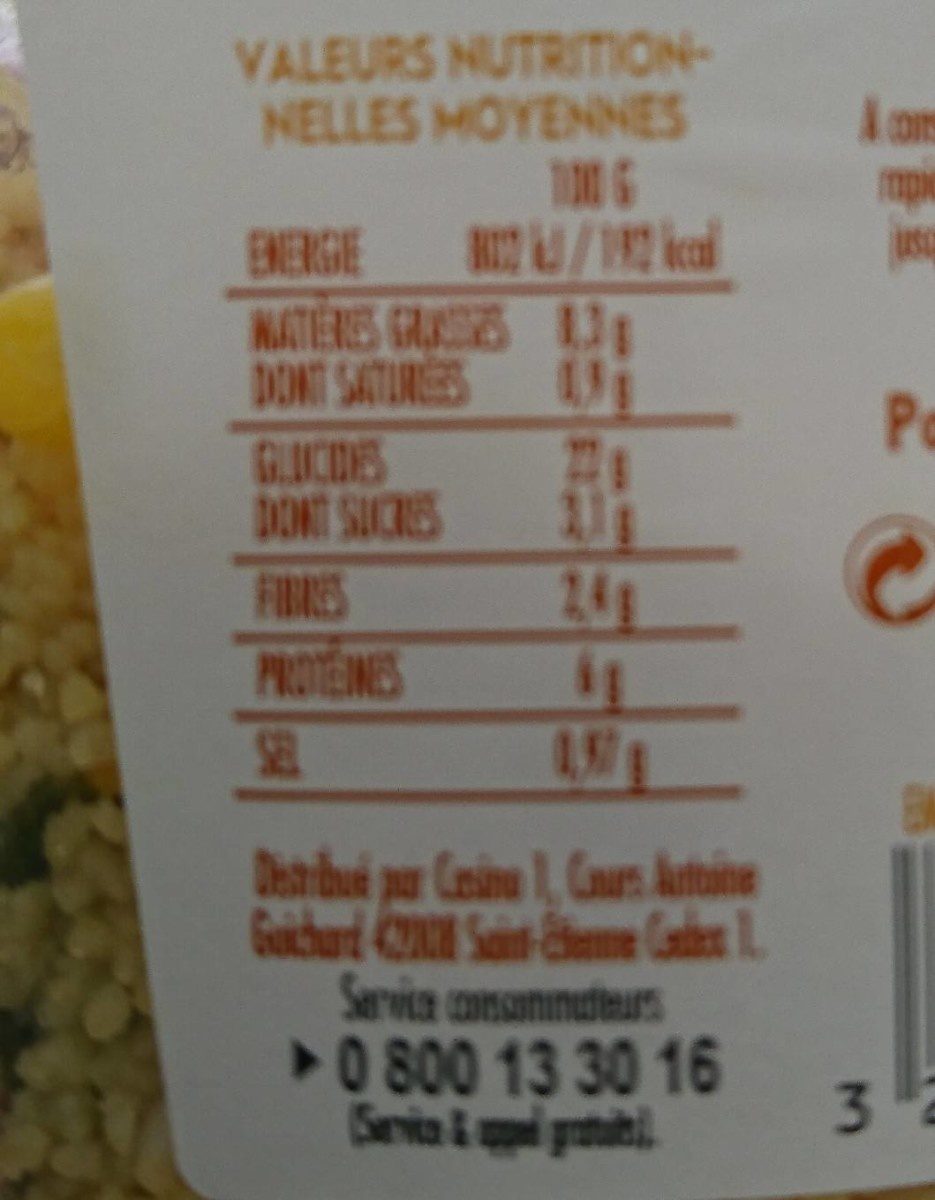Taboulé poulet - Casino - 500 g
This product page is not complete. You can help to complete it by editing it and adding more data from the photos we have, or by taking more photos using the app for Android or iPhone/iPad. Thank you!
×
Some of the data for this product has been provided directly by the manufacturer casino.
Barcode: 3222477061293 (EAN / EAN-13)
Common name: Salade à base de semoule de blé dur précuite, de légumes (23%) et viande de poulet traitée en salaison, reconstituée, cuite et rotie
Quantity: 500 g
Brands: Casino
Brand owner: Casino
Categories: Meals, Tabbouleh, Chicken Tabbouleh, fr:Salades
Labels, certifications, awards: Unfrozen
Origin of the product and/or its ingredients: France
Origin of ingredients: France
Manufacturing or processing places: France
Stores: Casino
Countries where sold: France
Matching with your preferences
Environment
Carbon footprint
Packaging
Transportation
Other information
Conservation conditions: A conserver entre 0°C et +4°C. A consommer rapidement après ouverture
Recycling instructions - To discard: Elements plastique
Report a problem
Data sources
Product added on by kiliweb
Last edit of product page on by segundo.
Product page also edited by casino-off, cyn, foodvisor, openfoodfacts-contributors, org-casino, roboto-app, sebleouf, teolemon, yuka.UTdzR0xMVmVsK2dyc2ZFLy9EYnoxb0lwMnJ5SFFGK01EUFl0SVE9PQ.










